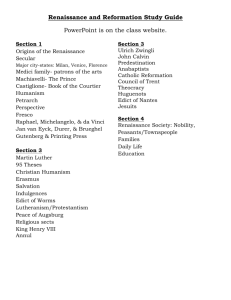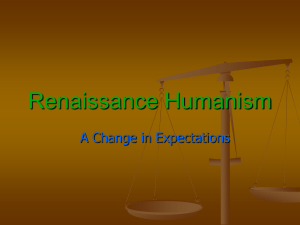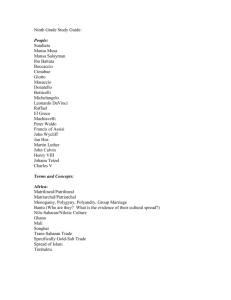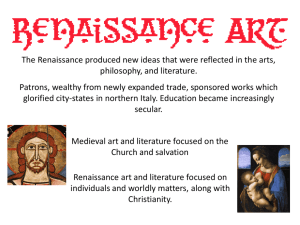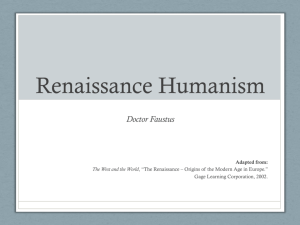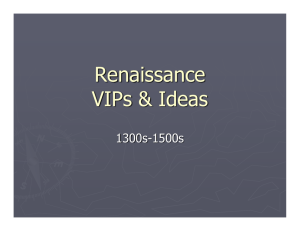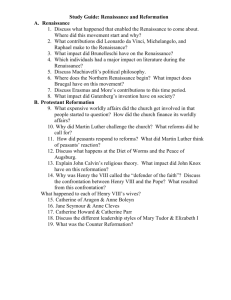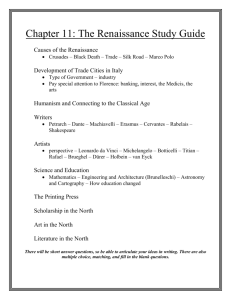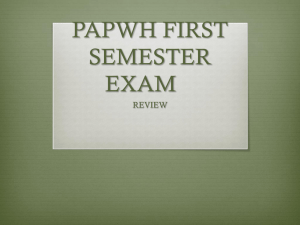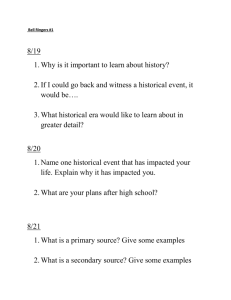The Northern Renaissance
advertisement
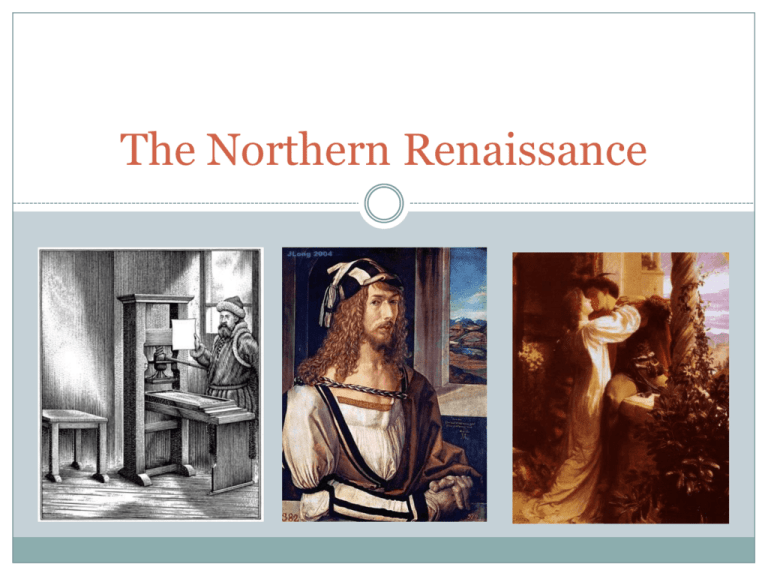
The Northern Renaissance In your notes, duplicate the text and picture exactly as you see it! When April with his showers sweet with fruit. The drought of March has pierced unto the root, And bathed each vein with liquor that has power, To generate therein and sire the flower; When Zephyr also has, with his sweet breath, Quickened again, in every holt and heath. Printing Press Johann Gutenberg 1398-1468, German Goldsmith 1456 – developed moveable type Introduced printing to Europe Impact By 1500 – more than 20 million volumes By 1600 – more than 200 million Making books cheaper, easier, more efficient Millions of copies of the Bible Education increased literacy Literacy Why is literacy so important? People interpret things themselves form own opinions individuality (free thinking, self-reliance) Renaissance Spreads North Why it took so long North recovers slowly from the Plague Feudalism disappeared later than in Italy Catholic Church’s power weakens in the North Europe was torn Christian Humanism Humanism Christian Humanism in the North Scholars tried to unite classical learning (Greek & Roman) with Christian faith Religious and moral reforms Sir Thomas More 1478-1535 Classic English Humanist Studied Law, Lord Chancellor under Henry VIII Eventually executed by Henry VIII Utopia – 1516 No one knew what utopia meant: Ideal Place Ou-topos (no place) eu-topos (good place) Description of an ideal state since Plato’s Republic Utopia Name for a fictional island society & its customs Communal ownership of land No private property men and women educated the same complete religious toleration not atheism Do these ideas sound similar? Communism Humanist Thinkers in the North Erasmus: Dutch Humanist Prince of Northern Humanism Said Italian Renaissance only focused on the elite class Northern Renaissance thinkers reformed society’s ills Focused on all levels of society not just elite. Wrote “Praise of Folly” About church’s mistakes Ignorance, superstition, and greed Wanted church reform but not reformation. Shakespeare produced most of his known work: 1589-1613. early plays: comedies and histories. wrote mainly tragedies until about 1608 Hamlet, King Lear, Othello, and Macbeth, some of the finest works in the English language. last phase: wrote tragicomedies, aka romances Northern Renaissance Artists Greatest painters of the Northern Renaissance were from Flanders (now Belgium) Germany Albrecht Durer: Painter 1471-1528: Nuremberg, Germany German “Leonardo” – studied in Venice Anatomy, science, math (proportions) Spread Renaissance ideas North Mastered wood cuts & carvings Religious & classical subjects Hans Holbein the Younger 1497-1543: Germany “the Younger” to distinguish from father Greatest portraits of the 16th century Artist for Henry VIII Most famous painting – Anne Cleves – 4th wife of Henry VIII Hans Holbein the Younger: Anne of Cleves Jan Van Eyck 1395-1441 – Flemish painter Father of oil painting Perfected new effects using this technique Van Eyck often signed his paintings on their frames Cathedral at Ghent, the Adoration of the Lamb (1432) First PAINTED altar piece (before they would be wood cuts) Adoration of the Lamb
